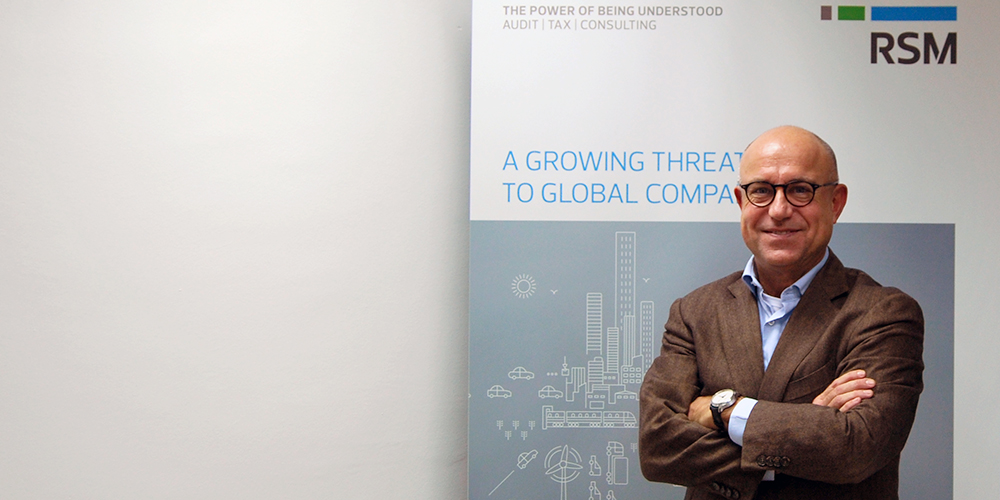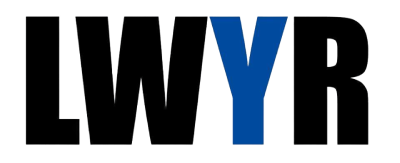"We are a reserve of management potential for companies, with most management boards in Mallorca drawing heavily on auditors"
Interview with Julio Capilla, president of the Balearic Islands Institute of Chartered Auditors and partner at RSM in Palma
What are your impressions of the last two years at the head of the Balearic auditors?
The previous single-candidate agreement meant that the elections held two years ago were the first elections to be held in many years. My fellow candidates and I were very honoured to be elected by our own colleagues. The challenge began from that moment. Frequent criticism of this profession is born out of a lack of understanding of our occupation, and one of our main responsibilities is to raise awareness so that people know what we do, why we do it and how it makes sense. We therefore welcome interviews and the chance to collaborate with the media. Raising our public profile and increasing understanding of the value we bring to businesses and business transactions is a critical objective for us.
Another objective we have pursued during this period is to maintain ongoing training to all our chartered members as a key element in the provision of that value. In our profession, as in the legal profession, the value to your client is in the service you provide. You can’t provide that value without a solid business background, legal knowledge and knowledge of new technologies, among other things. It is true that the auditor has to be independent of his client, but that doesn’t stop us from offering a helping hand and acting as consultants when a client is interested in new markets, investments, etc. The greater the quality and quantity of training you have received, the more you will have to offer your client.
Finally, we need to know what will happen to our profession in the future. In a study carried out on the state of auditing in Spain, the demographic aspect was illustrated with an inverted pyramid, depicting the loss of many experienced people to retirement over time. We need today’s university graduates to see auditing as a profession with an attractive future in terms of their professional development. Nor is unemployment an issue, because the need we have for human resources is such that the supply outstrips the demand. Every year new auditors find positions in firms.
What is the current situation in the auditing sector in this community and in Spain in general? In other words, what are the challenges and opportunities to be considered?
The first great challenge is the one we have just raised: insufficient incentives for young people. Though they are the future of the profession, young people fail to perceive the advantages of auditing as a career path. We are in fact a reserve of management potential for companies, with most management boards in Mallorca drawing heavily on auditors. We have the advantage that, if you don’t fancy being an auditor, you will be able to find employment anywhere, given the technical value and managerial skills we can offer to companies.
If we want to foster and attract young talent, it must be well paid, and the client must understand that
At the same time, if we want to foster and attract young talent, it must be well paid, and that is something clients must understand. Our work requires many hours and a great deal of training from our audit teams, so the service must be provided at a competitive price. Increasingly, our clients are involved in business projects and complex company operations outside Spain, meaning that we need to be aware of accounting legislation in other countries and many other things, and invest time in study. All of this has an impact on the price clients must pay if they want quality. If we cannot provide a well-paid, quality-assured service, we will find ourselves in the untenable position of being professionals offering our services at low-cost prices. When we sign a report, we are responsible for ensuring that the figures are correct, because inaccuracies could mean problems for our client and the whole audit team. The auditor is the person that guarantees that a company’s figures are correct, for the benefit of the users of that information: shareholders, employees, banks, the general public, etc. That kind of responsibility requires many hours, dedication, and a well-trained team with up-to-date skills. All that comes at a price. Any professional activity that fails to monitor its profitability is doomed to failure, and even more so if quality of service is not made a priority.
Another current threat is the challenge to adapt to new technologies: how to make efficient use of each company’s information, given the immense amount of data increasingly handled by companies, and use the appropriate software for handling this data. Adapting to new technologies allows the auditing profession to be perceived as a sustainable profession delivering superior quality service to its clients.
The profession of auditor is highly regulated, not only by the ICAC, but also by the Bank of Spain and the Spanish Securities and Exchange Commission, among others. There are many public bodies observing the work of the auditor. Following the financial crisis, it was said that a guarantee of transparency was lacking, and the regulations governing auditors were tightened up somewhat as a result. This means that these days it makes no sense for an auditor to work alone. A team of people and sufficient and appropriate structure is needed to meet regulatory requirements and the demands of the market. We are required to be much more competitive and to associate or merge with other companies in the sector. It is a great opportunity for small audit companies that were very much on their own in terms of resources, but now have access to bigger clients through company alliances within our sector.
What should audit companies be doing to get the public sector to be accountable to its citizens with the utmost transparency?
A law relating to the internal control of regional public-sector entities will come into force in July 2018 and is going to require more self-auditing from the public administrations> above all, the town councils and, specifically, their related entities. It is one of the things we have been pushing for, because we believe it makes no sense that local town councils are not audited. Commercial enterprises like Emaya perform audits, but the corporation, the town council itself, has public expenditures for services to citizens which are funded by our taxes, and these are not audited. The town council says it has its own audit which reviews its accounts, but this is done without the intervention of an external auditor who ensures the application of a methodology and set procedures. Moreover, the results or conclusions normally come out only after much delay. If the internal controllers don’t do it, they should externalise part of that function and use external auditors so that citizens can enjoy timely access to information that assures transparency and enables them to find out what their taxes have been spent on.
At the same time, the auditor needs to begin to be seen as a professional with the training and experience to perform operations audits. We see and we visit many companies in both the public and private sectors. That enables us to analyse many procedures and ways of doing things and distil the best practices. We know that, on occasions, the public sector is inefficient, due to duplication of functions and problems with monitoring. These are areas which must be greatly improved, and in which we could put our knowledge and experience to good use. The public sector should be subject to the same requirements as the private sector. The former has existed for years in a situation in which short-term measures are taken without regard to broader reforms that could result in a more efficient, cost-effective and productive public sector.

The introduction of criminal liability for legal persons has obliged Spanish companies of all sizes to have a compliance programme. What is it and how does it affect the internal organisation of companies?
There is always a risk that someone will bypass the controls and commit an offence, but that risk must be minimised
A company may have the figure of partner director, sole director, or board of directors, any of which is required to manage the company diligently and with good practices. In recent years, these figures have been embroiled in scandals when they have failed to exercise responsibility in the performance of their duties. Some of these figures signed the particulars represented in the financial statements and later, when held to account in the face of a dispute, they excused themselves saying they just signed the papers they were given. The reality is that the work of a director consists of a bit more than just signing their name; the director is accountable for those figures and how they got there. The most recent amendment to the Capital Companies Act —and this is something that the people at Bufete Buades are well aware of— reinforces the accountability of those directors as a key figure in improving the corporate governance of companies. It is linked to the reform of the Criminal Code, which states that the company must be indicted for an offence; but where the legal person is an entity, that indictment is going to be delegated to the natural persons and the directors, should they be shown to have failed to establish the appropriate controls to prevent certain corporate or other financial offences from being perpetrated in their organisations. The company’s management must ensure that the company abides by the legislation and introduces controls to prevent any possible infringement. In the past, a company director strived to maximise profits, but now what they want is to achieve the best profit, which is not the same thing.
Corporate governance has two premises: meet company objectives, and do so within the applicable legislative framework. Procedures need to be created which demonstrate the reason for every action, that checks are being performed, that there is an internal review process, effectively imposing measures so that, in the event of a failure to comply, nobody is held accountable. Evidently, an offence can be committed in any company, but at least the necessary measures were taken to try to prevent it. The reform of the Criminal Code kicks in if you have not exercised a minimum of diligence in your management practices, and you can be indicted for not justifying and demonstrating that you did everything possible to prevent the perpetration of the offence. If all the necessary measures have been taken, this will be a mitigating factor considered by the judge, in that you have acted appropriately by imposing measures and controls. There is no such thing as zero risk: there is always the risk that someone will bypass the controls and commit an offence, but that risk must be minimised as far as possible.
You have collaborated professionally with Bufete Buades in your capacity as a partner at RSM Spain in Palma. How far does your relationship go back and how would you rate the experience?
We first met professionally a few years ago through clients we have in common: Bufete Buades are our go-to legal consultants, and we are their auditors. We believe in collaboration with other companies that provide professional services, having meetings with them and assigning tasks according to each company’s area of expertise, to the benefit of our mutual clients. Bufete Buades is of the same mind, and this, together with the satisfaction of those mutual clients, is what creates the mutual trust that motivates us to continue to work together.
In our collaboration with Bufete Buades, we provide the auditor’s perspective while they offer the legal view
Another connecting link has been everything to do with what is known as compliance. Joan Buades and Llorenç Salvà saw that companies needed them to advise on introducing models for which the firm supplies the legal assessment, and we supply a methodology of the controls a company must have to prevent offences being committed within it. The problem with compliance is that all companies considered of public interest, like listed companies, are now obliged to demonstrate compliance within a framework of corporate governance requirements, yet non-listed companies are reluctant to introduce it. However, gradually both we and Bufete Buades are working to convince them to see the need and the definitive value they will add to their company by introducing models like these, as well as complying with current criminal legislation.
And that is how we came to join forces with Bufete Buades, working together in an area in which, in order to provide a service, they needed more of an auditor’s perspective and we needed more of a legal perspective on the introduction of compliance models. On occasions, we also work with the firm’s lawyers as independent experts, producing expert reports for lawsuits the firm is involved in.
There is nothing better than mutual trust, a handshake is worth so much more to us, and we see in their offices the same practices we value in our own: rigour, client-oriented operation, helping the client to resolve problems, etc.
What are the coming challenges for you as president of the Balearic Islands Institute of Chartered Auditors?
We want to continue to be very transparent with our chartered members, which is why every year we publish an annual activity report with details of what we have done. It is one of the ways we can be transparent with our associates, with those who voted for us as well as those who didn’t.
Then there is the challenge of training, since we need to do training courses to keep abreast with changes in the legislation. We have a programme in which we do more than 90 hours of training a year. Auditors are obliged to accumulate a minimum of 120 hours every three years, and a minimum of 30 every year. We do 90, much more than the minimum required by law, because we consider it very important. The training is not limited to just accounting, commerce and tax. Increasingly, we offer more training in team management, office management, commercial topics, etc.
We want to continue fostering alliances in our sector, and we have activated a section on our website for posting jobs wanted and jobs offered by firms of auditors
On the question of human resources management, we have to consider that professionals starting out on their career today don’t think the same as I did when I entered the profession. We either learn how to manage this with flexibility —the work-life balance problem can be resolved with teleworking, for example— or we will lose them. We can’t treat them as we were treated 20 years ago. All of this has to be explained to auditors, because they are going to have to do something so that the new generation feels comfortable and doesn’t just leave their offices. It is also important to learn to speak in public, because if you have to take part in a meeting of a board of directors, you must be able to clearly and convincingly explain the results of the audit to the board members, or, in a court of law, ensure that the judge understands you. This is what training is all about, and the challenge is to introduce it into our plans in a way that is appealing.
Another issue is to continue to defend the interests of our chartered members in the event of a dispute. As we mentioned earlier, we also work to continue to foster alliances in our sector, and we have activated a section on our website for posting jobs or opportunities wanted and jobs or opportunities offered by firms of auditors. For example, if someone wants to sell their client portfolio because they are retiring, they can connect with someone who is interested in buying it to expand their audit group or company.
Finally, we set ourselves the two-pronged challenge of persuading the public sector to understand the need for the figure of an external guarantor who attests to the accuracy of their figures, and of convincing the private sector to perceive auditing as another asset, rather than an inconvenience. I would love it if lots of companies would agree to be audited, despite not being obliged to, to open up the market. More and more small companies not obliged to do so are volunteering to be audited to gain credibility with third-party stakeholders, apart from the banks and their partners.






































